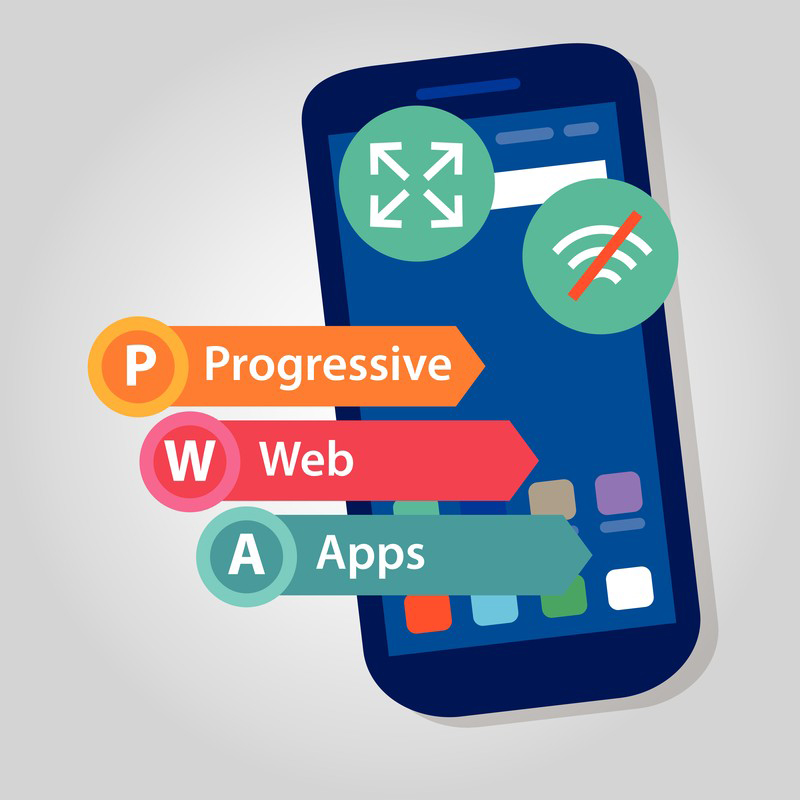Digital marketing for healthcare is all about mobile these days. With the expected launch of Google’s mobile-first index not so far away, the future is certainly mobile. SEO innovations will most certainly involve mobile devices, and 2018 could see many of these innovations take shape.
The mobile-first index is expected to be a big one. But there are some of the overlooked trends too, such as the growing importance of Progressive Web Apps (PWAs) that have features of native apps as well as web apps.
The implications of the mobile-first index were covered in our blog. Looking at the other trends, the merging of the app and web is really significant. Cindy Krum of Search Engine Land expects the trend to really grow in 2018, with a greater focus placed on Progressive Web Apps (PWAs). PWAs were already a talking point in 2017, so you might have an idea of their potential. If not, let’s quickly go through what Progressive Web Apps are.
Progressive Web Apps
PWAs are basically websites enabling downloading of an app shell as well as configuration file to a phone. That allows the PWA to take on native app characteristics, making use of the relevant hardware features of the phone, while actually existing on the web.
Since the usual web apps are websites built on JavaScript appearing like native apps, it doesn’t take much to make them function like PWAs. All it requires is adding a few extra files and some more functionality. PWAs enable placing a convenient app icon which the user can click to access them. They also enable push notifications, rapid and agile functionality online and offline, and a full-screen display sans address bar.
What Makes PWAs Great
With PWAs, organizations can connect web discoverability with the user satisfaction of apps. These can be installed like native apps on Android devices or used on the web directly. For clinics and small healthcare organizations, that makes it quite easy to reach out to the audience since there isn’t much to maintain, promote or optimize. There are people who need quick health details, and all they need to do is click your app icon for the information they need. The costs and effort are significantly reduced for you.
As developer Pete LePage describes in Google developers’ Web Fundamentals blog, progressive apps have myriad advantages. They develop the user experience:
- The user doesn’t need to install PWAs. PWAs can connect to the user through a browser tab.
- The functionality and features of the apps keep improving as users keep building up a relationship with them over time.
- Here’s another important, user-friendly aspect – PWAs load quickly, even if users aren’t on a particularly strong network. Offline functioning is also possible.
- PWAs can provide a full-screen loading experience.
- PWAs are like responsive web designs, fitting into any form factor or screen resolution.
- Apps are freshened and updated with constant service worker updating.
- These apps can be tracked easily because of server worker registration as well as W3C manifest that identify PWAs as applications.
PWAs Provide Great Value
The tremendous value that PWAs offer will lead more organizations to create them, and that’s what medical app development will be focusing on. In an Android phone, you’ll find that PWAs are mostly treated like native apps. They are displayed in the app tray and their specs and resource consumption are revealed in the same places as the apps. And, they could get added to the Google Play Store too. Krum points out that Google has already started transforming its web resources such as Google Contribute, Weather, Maps-Go, Sports, Traffic, etc into PWAs.
User Engagement through App and Web Visibility with Site
With PWAs, organizations don’t need to establish deep links from website to app or vice versa. This has been a tricky and complicated process for organizations whose website and app content aren’t exactly similar. Deep linking has shown to be prone to error. Krum reminds that deep linking can fail or breakdown totally, if changes happen in the app or the content moves in the website such as a total migration or 301 redirects.
But with PWAs, all those hassles are done away with. Physician clinics and other healthcare practices can make themselves more visible on the web and serve the information needs of their prospective patients though Progressive Web Apps. Organizations are realizing this, and PWAs could therefore be widely adopted this year.
Make sure PWAs are part of your strategy too, so as to capitalize on the potential. Experienced companies offering medical software development will be able to help you here.





